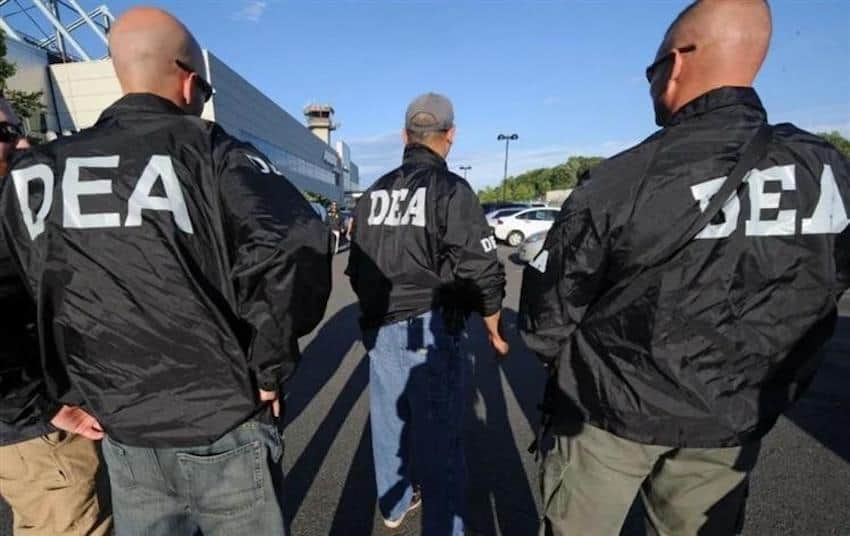A few weeks ago, a well-read friend of mine gave me a book with no commentary other than “You must read this.” The book, titled “One Hundred Years of Spies and Drugs: The Story of United States Counternarcotics Agents in Mexico” by Carlos Pérez Ricart, didn’t exactly fit into my standard reading interests, which are more focused on business, the economy and politics. But given my friend’s insistence, I decided to give the book a try.
I remember thinking similarly when pressed by friends to watch the Netflix series “Narcos.” My wife and I do not like consuming dramatic or violent content and try to avoid it as much as possible, as we feel like it is the equivalent of junk food for our brains. But once I began watching the “Narcos” series, I must admit that I found it fascinating. The insight it provided into the inner works of the DEA, the CIA, the U.S. government, the Mexican government and of course the cartels, was informative, enlightening and disturbing.

This book had a similar effect on me and within just the first few pages, I became completely engrossed in the details. So much so that I reached out to the author, Carlos Pérez Ricart, and sat down with him to discuss his book and his thoughts on the current state of U.S./Mexican affairs. What follows are the highlights of our conversation.
MND: Recent news headlines are filled with threats from the Trump administration regarding the Mexican cartels. The administration has made it clear that if Mexico is unable to solve the drug problem, the U.S. will get involved and get it done. What are your initial thoughts on this?
Pérez Ricart: The reality is that the United States has in fact been involved quite actively in the drug industry in Mexico for nearly 100 years already, so in many ways it would be nothing new.
Help me understand why and how the U.S. has been involved for so long. How did it begin so long ago?
During the Second World War, the U.S. military became increasingly concerned about the reliability of the supply of Asian (and Turkish) opium needed to produce morphine for wounded soldiers. As a result, U.S. agents went looking for an alternative supply in Mexico. They wanted to have a supply chain closer to home that was not actually in the United States, given the delicate nature of the product.
The result was essentially the development of an opium supply base in the Mexican states of Sonora and Guerrero. The second well-documented case of the U.S. military encouraging the production of opium in Mexico was during the Vietnam War for the same purpose of local morphine supply when Asian supplies were disrupted. I will note that there is no formal agreement of the U.S. buying opium from Mexico, but rather vast amounts of documentation making clear the encouragement of the development of a supply base of the product.
Wow. You are saying that the U.S. military actually had an important role in developing the opium drug industry in Mexico? That seems like a pretty staggering claim. How confident are you in your research and sources of information?
Most of my sources are actually public information from the National Archives in Washington, D.C. As do all government agencies, the DEA, after a certain period of time, makes many previously classified documents public. I dedicated my Ph.D. and several years of my life reviewing the DEA archives on Mexico in the National Archives in D.C., as well as additional archives in California and Texas archive offices. I was subsequently able to fill in gaps of information though many requests I made to the U.S. government through the Freedom of Information Act (FOIA). I was told by the National Archives staff that I was only the second person to review these documents since they were first released.

What about documents from Mexican sources? What was available to help piece together the history?
Actually, in Mexico, there is much less documentation on this issue. Most of my research came from documents prepared by different government agencies in the United States and from countless interviews of former DEA agents in both the US and Mexico.
Tell us what you learned from those interviews.
I think that it’s important to understand the scale of DEA agents and employees from other agencies operating on a constant basis in Mexico. Today, we know that, officially, there are 52 DEA agents working out of 12 offices in Mexico. This is public information and we know the names and locations of each of these agents. There are also 14 other U.S. agencies operating in the country: groups like ICE, CIA, FBI, etc. In addition, there are an unknown number of additional U.S. agents temporarily in the country at any given time. Interviews with 50-plus former agents suggested that there are as many as 400 “unofficial” agents also operating in the country. In fact, no one knows the actual number, including DEA headquarters in Washington, D.C., as many of the field offices of the DEA — like Chicago, Houston, Atlanta, etc — are sending agents to Mexico as well.
What are all of these agents doing? Do we have any idea?
There is very little documentation telling us what the official and unofficial agents do, but my interviews with former agents confirm that in fact they have done investigations, made payments, done interrogations, made arrests and more.

So after the demand for Mexican opium for morphine purposes dried up, what happened?
Other organizations or individuals from the U.S. market naturally looked to already established farmers in Sinaloa and Guerrero to help supply other drugs for the U.S. market. After opium came cannabis, then cocaine and now fentanyl. The farmers had the expertise, the ability to produce unbothered by local, national and foreign governments, and the demand from the United States only increased.
Were there any real efforts to put a stop to the production?
There was a time during the marijuana production boom that the U.S. supplied Mexico with the herbicide paraquat to help eradicate the crops, but that initiative was ultimately stopped due to concerns about traces of deadly paraquat appearing in marijuana being sold in the U.S.
So getting back to the current U.S. administration’s threats to put a stop to the drugs crossing the border — have we ever seen anything like this before?
We have. Actually, Operation Intercept was launched by U.S. President Nixon in September of 1969 — nearly 56 years ago if you can imagine — in an effort to stop the flow of marijuana and other drugs coming into the United States from Mexico. The operation involved a zero-tolerance policy in which, for several weeks, U.S. Customs agents stopped every single vehicle coming from Mexico to search for drugs. This operation was part of Nixon’s War on Drugs initiative looking to pressure Mexico to cooperate with U.S. anti-drug policies. Needless to say, the initiative was not successful.
And here we are today, 56 years later, talking about the same issues.
Yes, very sadly the problems have only worsened. Hundreds of thousands of Americans [are] dying from drug overdoses, hundreds of thousands of Mexicans [are] dying from gun violence due to drug trafficking. To further complicate matters, the latest drugs — synthetic opioids — don’t even need farmers and can be produced in tiny one-room labs. The result has been worsening poverty, social issues and worsening violence in the states of Sinaloa and Guerrero.
I could talk for hours more on this fascinating (and extremely depressing and sad) topic. Let’s talk again soon to get your thoughts and perspectives on how there might be a positive way forward on this issue.
I would be more than happy to.
Stay tuned to MND for future interviews, thoughts and perspectives from Carlos.
Carlos Pérez Ricart has a Ph.D. in Political Science from the Freie Universitat Berlin and a degree in International Relations from El Colegio de México. He has taught at Oxford and St. Anthony’s College in the U.K. and is currently an assistant professor in International Relations at the Center for Research and Teaching in Economics (CIDE) in Mexico City. His book “Cien anos de espias y drogas: La historia de los agentes antinarcoticos de Estados Unidos en Mexico” is published in Spanish by Random House.
Travis Bembenek is the CEO of Mexico News Daily and has been living, working or playing in Mexico for nearly 30 years.
